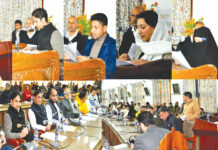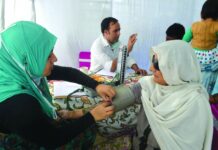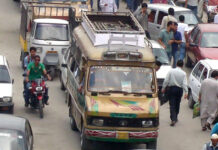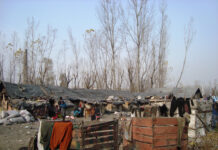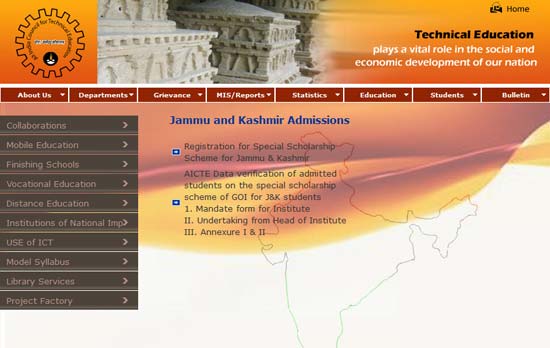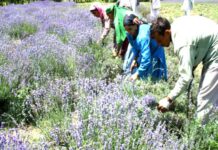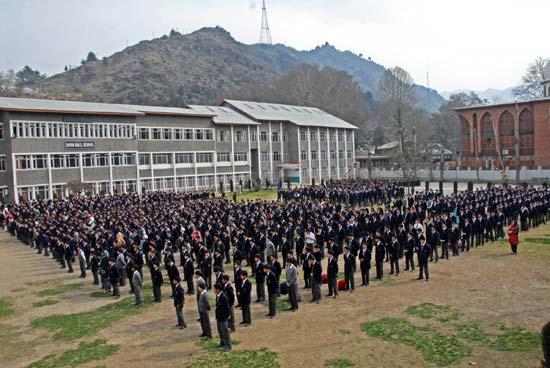Surcharged young men, many say non-locals, descended on the streets in Jammu and resorted to violence by singling-out particular areas. After initial losses, the police reacted quickly and imposed the curfew. But there were areas which neither saw protests nor violence, reports Pallavi Sareen

By the evening of February 14, Jammu Chamber of Commerce and Industries (JCCI) called for a peaceful protest against the Lethpora car bomb attack in which 49 CRPF personnel were killed. High Court Bar Association announced the suspension of work in all courts and tribunals. National Conference also supported the call.
There was a complete Bandh. Authorities suspended Internet services. Protests started quite early in the old city.
Led by Bajrang Dal, the Shiv Sena and the Dogra Front, the protesters took out candle marches in memory of slain personnel and resorted to anti-Pakistan, anti-terror slogans. Such protests were reported from Rehari, Gandhi Nagar, Pacca Danga, Jewel Chowk, Shakti Nagar, Purani Mandi and Bakshi Nagar.
Later, incidents of stone-pelting and arson were reported around noon from Talab Khatikan, Janipur, Jewel Chowk, Chenore, Bantalaab, Channi Himmat, Shaheedi Chowk and Gujjar Nagar. By afternoon, it was clear that more than 30 vehicles, mostly from Kashmir, were torched and many more were damaged. Much later, it came to light that many vehicles belonged to former soldiers, SOG officers, and Muslims from Poonch, Doda, Kishtwar and Bhaderwah.
The agitators, mostly youth, demanding revenge put up barricades on roads. By late afternoon, Jammu was under curfew “to maintain law and order situation and public tranquillity” and also “to protect life and property of the general public.”
It was Gujjar Nagar that was the scene of the mess. Protestors and residents clashed. Protestors alleged that the residents pelted stones on them during their protest.
“The young man who was carrying the national flag was drunk and he almost fainted and we had to go give him some water,” Hinan Khan, one of the residents said. “The police was asking them to leave but they just kept on chanting Bharat Mata Ki Jai.”
“The entire incident began around 11 am and soon the entire police hierarchy including the IGP had reached the place,” Vinod Jandyal, DSP City said. “We tried to pacify the crowd and we did lathi-charge and even lobbed tear-gas shells.”
But advocate Yawar, another Gujjar Nagar resident, said the protesters damaged their properties. “They broke our windows and damaged our vehicles while the administration did nothing,” Yawar said. “The family that lived in our neighbourhood moved to a different area to live with their relatives. Their windows were so badly broken and all the glass was in their bedroom. Someone could have gotten seriously hurt.”
“They took out the decorative flowerpots from Tawi Bridge and used them as projectiles to throw at our homes,” Fareed Khan said. “We never had to face any such thing before, even during the Amarnath land row in 2008.”
Residents also talked about a funeral procession that was passing through while the mobs were on frenzy. People stopped pelting stones and paved way for its passage to Jogi Gate. Similar incidents of arson were seen in Shaheedi Chowk where a dozen vehicles were torched.
Though the curfew imposed a sort of calm in Gujjar Nagar, there were sporadic protests in Nai Basti, Parade, Domana and Bantalab areas. A protest march was going on despite curfew in Janipur where the Durbar Move employees alleged stone pelting on their flats. The residents of Janipur Housing Colony said that they had already been attacked thrice by the mobs.
Police said they have made 17 arrests. “We ensured that things did not get worse,” a state police intelligence sleuth said.
Yasir Khan, a former student activist, said the people who vandalised Muslim shops or resorted to stone pelting in Janipur were non-locals. “It clearly seemed like a riot-like situation was being created intentionally for political gains,” Khan said. “When things got messy on Friday, local Muslims were returning to their homes after Namaaz, and no one said or did anything to them. One of the families had the Islamic flag on their rooftops and many people mistook it for the Pakistani flag so I went there and asked them to take it down. You do not realise what could happen when such a situation emerges.”

The people who were caught in the new situation seriously were the Move employees. Though the top officers of the state government visited various state-owned colonies to reassure them on security, the panic was everywhere. After the road opened, some of the families started moving towards Kashmir. The police started escorting the convoys of buses beyond Udhampur. These convoys would leave Jammu at around 11 pm under tight police escort. This was in response to the demand by the Move employees to give them safe passage.
Employees said they were being attacked for something they had nothing to do with.“Whatever happened at Lethpora had nothing to do with us,” one employee said. “We were not sitting in that car; we were in our offices, doing our work. Why are we being targeted?”
But there was another Jammu that was normal; the areas separated by the bypass, the literal garland around Jammu. As people felt insecure in Jammu, they all moved to Bathindi. Most of them took shelter in the Bhatindi’s Mecca Masjid.
“There were around 1500 or more people who had come with their families,” Shahid Tak, a Masjid Committee member said. “Later, started a langar (community kitchen) and fed them. We also started arranging their departure home. Most of them just wanted their families to be safe.”
“We ensured that any person who was coming here felt safe,” Moeen Ahmad, a Bathindi resident said. “No procession came here or pelted stones. We had only heard about what was happening in Janipur and Gujjar Nagar. In such times you cannot tell what is real and what a rumour is.”
“It is unfortunate what happened in Pulwama,” Chairman Jammu Muslim Front, Shujah Zafar said. “The terrorists did their job. But Jammu Muslims faced the brunt of that. The work of Pakistan is being done by the people who destabilise our economy and disband our brotherhood.”
Zafar said the local Hindu-Muslim bonds are strong. “I don’t find a local person in it. Who are these people? Are they terrorists? Are they migrants?” he asked.


